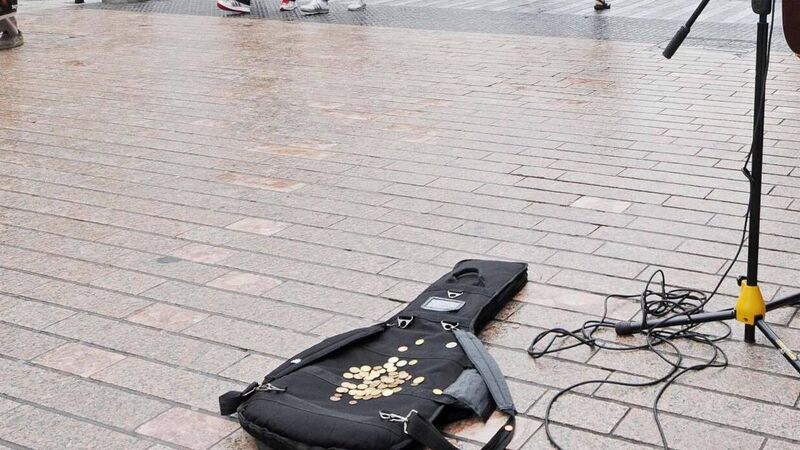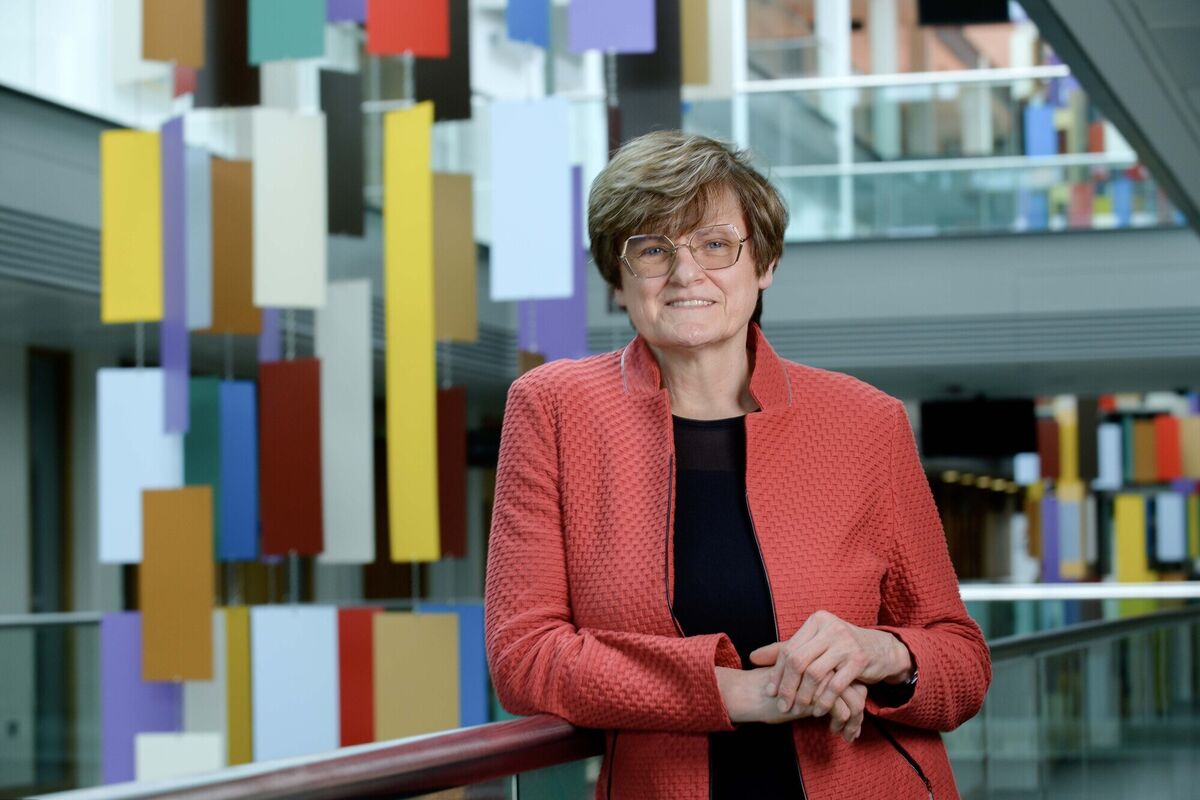Music to my ears... buskers in Cork city told to turn down volume

The draft text of the by-laws states: “The sound produced at a distance in the immediate vicinity of Street Performer shall not exceed 75 decibels.”
Hark!
“The use of backing tracks is not permitted in any circumstances.”
Amen.
“A Member of An Garda Síochána has the power to direct a Performer to move from a non-specified area at any time.”
Music to my sore ears.
My working location is infiltrated by the sounds of a band 100 metres away blasting out folk and trad songs for two straight hours.
It is not the songs themselves or the quality of the performance I have a problem with, it is the volume.
The sheer volume of the band’s amplifier means it is impossible to ignore them or tune them out. They demand attention, whether you are walking about town doing your jobs or sitting at your desk trying to do your job.
Requests to turn it down have been ignored multiple times. Pleas to the community gardaí are met with sympathy and promises to have a word that are, again, ignored.
I am not the only one who finds it irritating. Nearby, demented businesses and residents text each other on extra loud days. I schedule Zoom calls outside the hours when the band is playing because it is hard to convey professionalism when it sounds like there is a pub lock-in happening in the background.
I like music. I like buskers. I regularly donate to talented performers around the city. However, the buskers who play day-in, day-out at ear-throbbing volumes without regard for the businesses, residents, workers, and city regulars who have to continuously listen to the same ridiculously loud set-list need policing.
These regular buskers set up shop because they make money. Many people clearly appreciate their musical offering, but it is the unnecessary volume that is driving city centre locals nuts.
I also challenge the occasional passer-by, shopper or visiting tourist to listen to the exact same songs daily for a year or more, and see how enchanted with the performance they are then.
Cork City Council are proposing the introduction of Street Performer Permits for €30 a year (without amplification) and €60 a year (with amplification). Busking will only be permitted at certain locations between 10am-10pm or 12noon-10pm. Some locations will not allow busking after 8pm. Fines of €1,500 can be issued for non-compliance.
The provision I am most excited about is limiting the volume of a performance to 75 decibels. That is the sound of a loud vacuum cleaner.
If someone is hoovering outside my building 100 metres away, I will not hear it, and I am hoping I will not hear the buskers once they are compelled t to turn their amps down from 11.
I hope these new rules make buskers realise that consideration for others will be an important X-factor.

The story of Katalin Karikó’s patient research of messenger RNA, or mRNA, which led to the rapid creation of the effective mRNA vaccines against Covid-19, and eventually to the Nobel Prize in Physiology or Medicine 2023, is a tale of pure perseverance.
The daughter of a Hungarian butcher, she struggled to secure a permanent job in academia and was told by an official at the University of Pennsylvania that she was “not of faculty quality”.
Ten years ago, she was kicked out of academia and accepted a position in Germany’s BioNTech, where she commuted for nine years between the U.S and Europe, discovering how messenger RNA could be manipulated to deliver vaccines to human cells.
On her win, BioNTech, who partnered with Pfizer to make the first Covid vaccine, said: “This Nobel Prize is a reminder for scientists around the world to continue to engage in rigorous research and development with the great aspiration to unlock the full potential of new drug classes.”
Apart from biological breakthroughs, Karikó also raised two-time Olympic gold and five-time world champion rower, Susan Francia. Speaking after the Nobel announcement, Karikó said she had been referred to as “Susan’s mom” for a long time, but more recently Susan has been introduced as “Katalin’s daughter”, much to her amusement.
Reflecting on her award, Karikó spoke about her own mother’s belief in her, and how she used to tell her that maybe she would win a Nobel Prize some day.
Karikó scoffed at her mother’s blind devotion at the time, but now realises that persistence can pay off. She urges others, especially female scientists, to persevere.
Who knows what you might achieve!







 App?
App?




